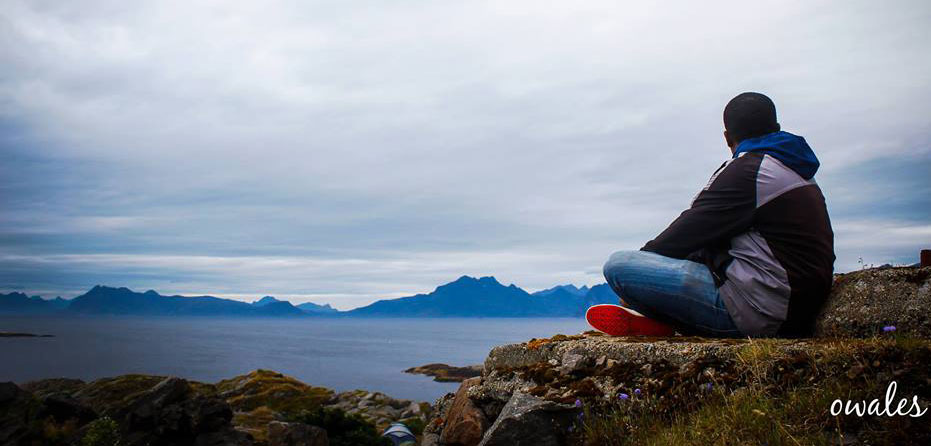Written by Babawale Obayanju, Environmental Rights Action/Friends of the Earth Nigeria, and participant in YFoEE summer camp 2013
Lofoten is one of the world’s most beautiful places, a home to the popular “OKPOROKO” and “KPANLA”, other names for cod or stockfish in Nigeria. The sights and sounds of Lofoten are breath-taking. It is a place anyone would always love to come back to visit or live in. The landscape, the fjords, the ocean, should indeed be preserved without destructive activities.
Norway is one of the world’s acclaimed oil producers, and has succeeded in operating relatively clean in their offshore oil operations for the past 40 years, but they are not without their flaws in their contribution to the climate crisis. Research puts the total carbon emissions from the country’s oil and gas activities at 52.9 million tons. Since 1990 the emissions from Norway’s oil and gas activity has exploded, despite of the CO2-tax that was passed in 1995. In 1990 the emissions from the petroleum sector was 7.8 million ton CO2 but last year it rose to 13.7 million tons CO2.
This increase is said to have resulted from two main reasons:
- Almost all the sea areas off Norway’s coast have been opened for the oil industry, and thus their tempo in exploration and drilling for oil has gone sky high.
- The other reason is that some of the fields they are operating are getting old, and therefore need more energy input for oil extraction.
Over the years it has been a ‘Yes’ case for oil drilling until the sudden resurging interest by the oil company operating in Norway, Statoil and Hydro, to explore and exploit oil from the prisitine region of Lofoten, Vesterålen and Senja arguing that this is the missing link in the oil production work.
Although the total amount of emissions from Norway are not that relatively significant on a international scale (contributing only 2% of the world’s total emissions), when we take a holistic look at the product being sold to the world either as crude oil or gas by Norway we can see that they contribute fairly above the said 2% CO2 emission since the buying countries abroad will emit CO2 on their behalf.
This week I have joined several other young folks from Norway, Canada, Europe, Nigeria and the USA to say no to drilling of oil in this rich, vulnerable and valuable marine ecosystem. Reasons being that if oil is drilled here the climate change impacts already experienced world over will get worse as a result of oil production activities, also the rich export market of the fishes from this region to the rest of the world would most likely depreciate.
Possibilities are that the over 6,000 jobs available here in fishery and tourism are going to be lost while the proposed 900 jobs to be created by the oil industry are going to be exported to experts from other regions of the Norway and world. The over 4% of the caught fishes worldwide which spawn or breed here in this area would move away to other regions or go extinct.
It is high time the political parties and the government of Norway look into this proposal and save the peoples and the livelihoods of Lofoten. The peoples of Norway have always given their “YES” to oil drilling except now. We join the rest of world to say the best solution to our changing climate is to leave the oil in the soil, the coal in the hole and the tar sands/bitumen in the land.
Norway has amassed sufficient wealth and should devote a fraction of that wealth to invest in and develop alternative energy sources. The time to do this is now, not later.

